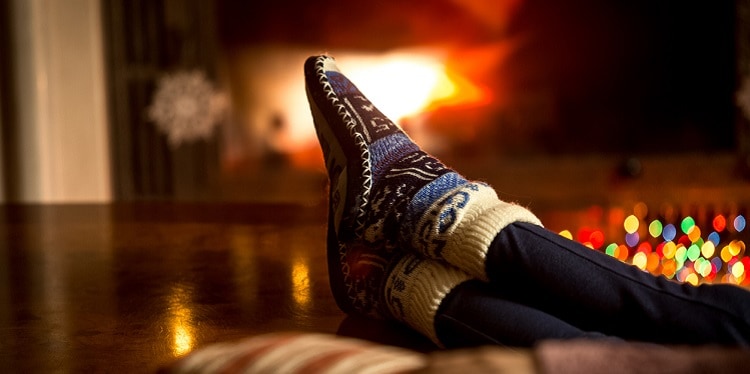How to cope with grief during the holidays

Kenneth J. Doka, PhD, MD, encourages us to practice the 3 C’s during the holiday season: Choose, Communicate, and Compromise. Choose what you want to do this holiday, and where you want to be. With a pandemic around us, choosing is even more important. Saying no to larger family gatherings can be painful and is a loss we also grieve. How will we choose to celebrate, keep our distance, and remain safe?
Communicate with family and loved ones honestly about the choices made. The holiday is emotionally painful and exhausting when coping with grief and loss. Do things a little differently. New meanings can arise from the holiday such as making charitable donations in a loved one’s memory. Identify what needs to be done and how will it get done, who will put up a tree, and write the holiday cards, if even done at all.
Compromise, discuss with others some of the changes you are making, and be flexible. How will you exchange gifts? Are the gifts homemade this year rather than store-bought? Is there a gift of time you can share with someone who is lonely or isolated? Perhaps this year you cannot give anymore and simply want a small gathering if any at all.
Be aware of grieving children in the holiday season. Understand that adolescents and children may displace anger. Consider creating rituals and memorials. Acknowledge the losses they may experience during the holiday season. Some activities for children can include creating memory boxes, and a charitable or memorial activity like tree planting or seed planting. Perhaps make or wrap a gift for the deceased. Personal actions such as baking cookies for the ones who cared for the dying, shoveling snow for an elderly neighbor, or visiting nursing home residents outside the windows with drawings, posters, and messages of hope, color, and life. Go to the National Alliance of Grieving Children and download their Holiday Toolkit for Supporting Grieving Children During the Season of Family.
Some additional ideas:
It’s okay to say no.
Because of distancing, we say no to some of those activities that brought us pleasure in the past. Can these activities be adapted and still meet distancing and mask safety? You may lack the energy as well as the desire to participate in activities you used to find pleasurable, especially after the death of someone you loved or cared for. When you say no, explain your feelings to those you are declining. Be sure to thank people for thinking of you. Most of all, let them know to keep asking. Things will not always be this way.
Look for the surprises and gifts in your day.
Look at the things around you, right now. Try to look at the same things you see each day, but through a different set of eyes. What are you grateful for that is within your view? See it with awe. Look at the face of someone you love and celebrate that they are in your life.
Gather memories of the person who died.
Are there others who knew and cared about that special person? The more you ask others to share their memories, the more likely you will be gifted with memories that are new to you.
Express gratitude.
On a daily basis, name three good things in your life. Despite all you have experienced with a death and a pandemic, you are probably grateful for many things in your life. For example: I’m grateful for my children, partner, parents, friends, colleagues. Gratitude can take so many forms such as the joy of watching your cat chasing the sunshine, or the peace felt after a walk, or the song you heard on the radio.
Watch a movie together, from afar
Take a break from all the news and information and watch a movie.
Other helpful resources:
- Modern Loss helps people talk candidly about loss with essays exploring grief.
- TAPS Institute for Hope and Healing webinar: So Much Has Changed Managing Secondary Losses During the Holidays, Kenneth J. Doka, PhD, MDiv, Member TAPS Advisory Board Professor Emeritus, The College of New Rochelle, November 20, 2019.
- TAPS Magazine, Winter 2020, Prepare Yourself for the Holidays, by Bonnie Carroll and Alan D. Wolfelt, PhD.
- The Center for Complicated Grief, Columbia School of Social Work, 6 ways to help loved ones grieving deaths during the coronavirus pandemic
- What’s Your Grief offers guides and resources (like e-courses and webinars) on issues surrounding death and grief.
About the author
 Julia Rajtar is a Board Certified Chaplain who has worked in hospitals and senior living communities, currently serving as Bereavement Coordinator with Hennepin Healthcare Hospice. She is a member of the Minnesota Coalition for Death Education and Association for Death Education and Counseling.
Julia Rajtar is a Board Certified Chaplain who has worked in hospitals and senior living communities, currently serving as Bereavement Coordinator with Hennepin Healthcare Hospice. She is a member of the Minnesota Coalition for Death Education and Association for Death Education and Counseling.

